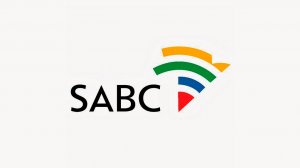For Creamer Media in Johannesburg, I’m Sane Dhlamini.
Making headlines: SANDF sent soldiers to Cuba for medical training, embattled Transnet seeks South Africa’s support and, household levy still a possibility
SANDF sent soldiers to Cuba for medical training
Medical training for South African troops in Cuba was 136% more expensive when compared to an equivalent tertiary course in South Africa.
The Department of Defence could have saved over R122-million if soldiers studied locally in South Africa according to the findings of the Auditor-General, who placed the department contract with the Cubans under the magnifying glass as it scrutinised its 2022/23 annual report in Parliament.
According to the AG, the Department continues to incur irregular expenditure relating to Project Thusano, the official name of the Cuban deal, and disclosed R308-million irregular expenditure for the project in 2022-23 financial statements.
Embattled Transnet seeks South Africa’s support
South Africa’s embattled State-owned freight-rail and ports company identified areas that require immediate state support in a turnaround plan that is being submitted to the government.
Transnet's board plans to meet the Ministry of Public Enterprises and the Ministry of Finance this week to discuss the plan, it said in an emailed statement on October 14.
Once approved by Public Enterprises Minister Pravin Gordhan’s department, it will be discussed with labour unions, employees, customers and lenders, the company said.
Last week, a plan was submitted to the presidency setting out ways to reverse the collapse of Transnet that has cost Africa’s most-industrialized economy $26.7-billion since 2010.
Household levy still a possibility
The South African Broadcasting Corporation still hopes to charge South Africans a household levy on all devices, including radios and cellphones.
Speaking at the parliamentary committee meeting, SABC chief operating officer Ian Plaatjes said the public broadcaster would make submissions during debates around the SABC Bill to consider the implementation of the levy as a means of replacing existing TV licences.
The bill was submitted to Parliament earlier this month.
The levy was previously proposed in 2021 in a draft White Paper to overhaul broadcasting policy, and will be charged on the realistic ability of South Africans to access public broadcast content.
Only 16% of South Africans currently pay their TV licences, with cash collection revenue decreasing by 13% in the 2023 financial year.
That’s a roundup of news making headlines today
Don’t forget to follow us on the X platform, at the handle @PolityZA
EMAIL THIS ARTICLE SAVE THIS ARTICLE ARTICLE ENQUIRY
To subscribe email subscriptions@creamermedia.co.za or click here
To advertise email advertising@creamermedia.co.za or click here










